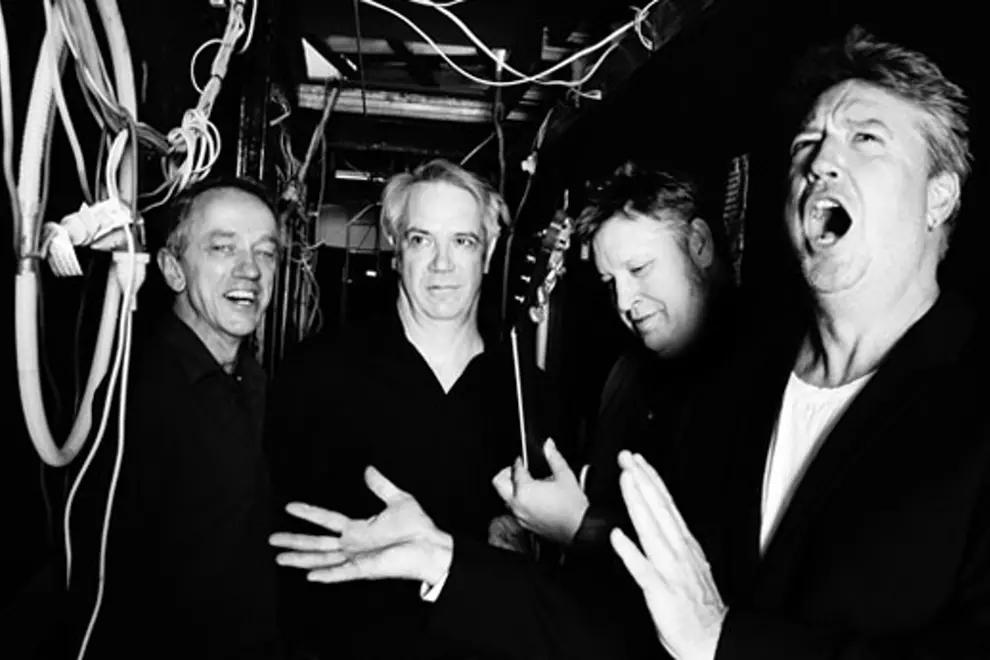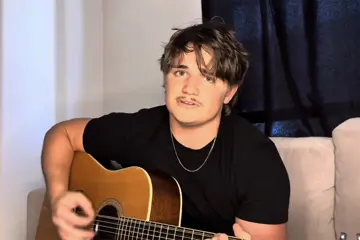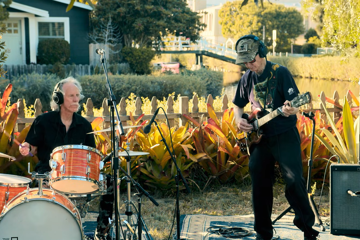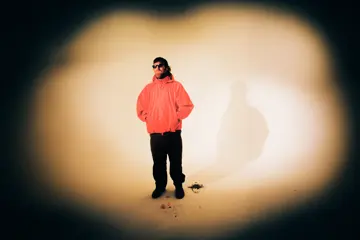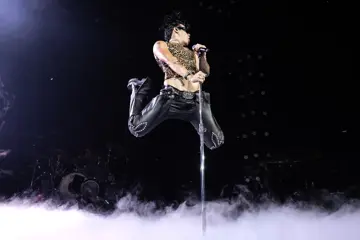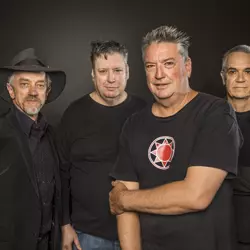 Sunnyboys
SunnyboysSometimes you can be lucky in this music business. The racket your band is making just might match the popular zeitgeist and it all happens very quickly. It certainly did for three young musicians – two brothers, guitarist Jeremy and bass player Peter Oxley, and their drumming school friend Bill Bilson – who'd grown up in the northern NSW town of Kingscliff, and met Wagga Wagga refugee, guitarist Richard Burgman, when they relocated to Sydney late in 1979 and formed a band called Sunnyboys. Late Aussie guitar legend Lobby Loyde happened to hear them rehearsing and took them straight into the studio to record a debut EP, which included a song called Alone With You.
That debut EP did such good business as an indie release that in February 1981, Sunnyboys found themselves signing with Mushroom Records, and with Loyde producing their first two albums, and over the next couple of years they had a string of hits including Happy Man and a re-recorded Alone With You. There was a UK tour, a third album recorded there and national tours, but then things started falling apart. Or more specifically, the band's singer and songwriter, Jeremy Oxley was falling apart, battling mental illness and a consequent drinking habit. By June 1984, barely five years into their career, it was all over.
“We didn't think we would be ever able to play again,” Peter Oxley admits, on the eve of the original line-up's first headlining shows together in 21 years, “due to Jeremy's battle with schizophrenia for many years, but since doing the Dig It Up! [Hoodoo Gurus invitational festival] show, which was last year, it was really a little testing ground for us to see if Jeremy enjoyed playing in front of people again and if he had the confidence to play. So really, none of this would have happened if it hadn't have been for that Dig It Up! show where we played under a different name and we played on the Sunday afternoon, just to sort of protect ourselves and Jeremy. But the show went very well and Jeremy loved playing again, and the audience loved us, which was quite overwhelming on the day. So after that show we just thought if there were any offers for us to play more shows, we'd take them up and play a few more shows.
“Jeremy's really enjoying [reconnecting with the band and the back catalogue] – the band, we're having a great time, and it's interesting thinking about it 'cause we were around, you know, 30 years ago and we weren't around for very long, but I think, particularly Jeremy's lyrics have stood the test of time. They can be totally… You can relate to them now as you could in 1980 because they're not really set in a particular time period. They're more about how you feel, and you're questioning what you're doing, and the confusion of being a teenager and a 20-something person in this world, you know, and I think those lyrics still are relevant today. When I listen to the songs, I still can relate to them,” he chuckles. “It was very easy to play them all again and they were very, very fresh, like we'd stopped playing yesterday.
Don't miss a beat with our FREE daily newsletter
“I was quite amazed, because we only rehearsed three times before we played the show at the Enmore Theatre, and after the first song in the first rehearsal, we were all just smiling – we just went, 'Whoa, here we are!' And funnily, being a little older as well, you're much sort of calmer and a bit more confident in your playing and in your singing, so it's nice having that feeling as well, playing these great pop songs with dark lyrics is bloody great fun.”
While the band will of course be playing the hits expected of them, the set has been structured around what Jeremy feels he really wants to sing – “There were some songs that he didn't want to play.” Then, as well as the performance, the evening will feature a screening of a documentary, The Sunnyboy, directed by Kaye Harrison, whose credits include the ABC-TV documentaries 2005's Crossing The Line and 2010's The Long Goodbye, who also coproduced it with Tom Zubrycki. The documentary, which is filmed from Jeremy Oxley's perspective as his confidence and wellbeing slowly grows thanks to a new medical regime that stabilises his condition, as does the support of his partner, Mary, won this year's 'Stanley Hawes Award' “in recognition of an outstanding contribution to documentary filmmaking in Australia”. A condition in which the sufferer is never sure what is real and what isn't, we see Oxley struggle with the physical ravages of his illness and the bridges rebuilt in relationships damaged by it, particularly that with his brother Peter.
“It's really unravelling the story of Jeremy's struggle with schizophrenia,” Peter explains carefully, clearly aware of the importance of getting the explanation right. “It's a very positive documentary. What we're trying to show, through Jeremy's portrayal, is that there's always hope, and if possible, if you can be there, there's always the chance that that ray of light can come through – there might be some sort of success in the end. You know, for a very, very long time there did not seem like Jeremy's pain and confusion would ever be able to end. I mean, he's still very fragile, but he's able to live in our world now and be part of our world. He's able to sing again and to play his guitar, and he's in a great, loving relationship with his wife Mary. So it's almost a miracle,” he laughs self-consciously.
“Well, it is a miracle that it's actually even happened. It's been a good two years doing the documentary because I think also it's been very good for Jeremy. He's been able to unravel a lot of stuff that's been in his head for a long time, just through answering questions on how he feels with the documentary maker. Hopefully it'll [show] families or friends or people that know someone with a form of schizophrenia that there can be a positive outcome, that there is a chance that they may be able to get good help.”
The thing to realise about all this is that around one in every 100 people will experience psychosis at some stage in their lives; that schizophrenia is the third leading contributor to the burden of disease and injury in Australian males aged between 15 and 24, and the fifth leading contributor for females, and that overall, about 50 per cent of people who develop a psychotic disorder will do so by the time they are in their early 20s.
As for the Sunnyboys, “We feel very privileged that we're able to play again; also that people want to see us play,” says Oxley. “Really it's a celebration I think of the fact that Jeremy made it to here and the four of us can get together and play these songs from when we were young and thanks for coming along!”

